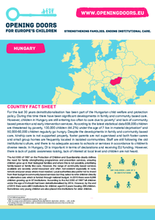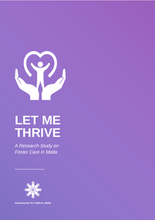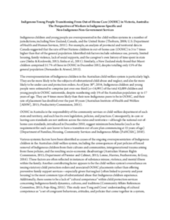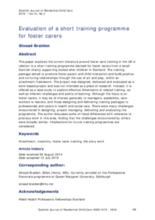Displaying 1721 - 1730 of 2221
As part of phase one of the development of the Martin James Foundation's Asia Care Network, comprehensive studies of the care system in each country were conducted to highlight the need for developing alternative care systems across South-East Asia. This case study highlights the relevant data from the Philippines.
This article presents an overview of the Polish system of foster welfare, its regulations by law and directions for further transformation.
This Country Fact Sheet discusses deinstitutionalization as part of Hungary’s child welfare and protection policy.
This is an article discussing a research study performed to determine the best forms of out of home care for children.
This article investigates the current leaving care and post-care supports that are available to Indigenous care leavers in Australia.
This paper explores the current literature around foster care training in the UK in relation to a short training programme devised for foster carers from a small Scottish charity supporting looked after children in Scotland.
This three-part video series shows how a fictional organization, Greene County Department of Human Services, set out to improve permanency for children and youth by increasing the number of available foster and adoptive homes using data-driven decision making (DDDM).
This systematic review evaluated the effect of kinship care placement compared to foster care placement on the safety, permanency, and well-being of children removed from the home for maltreatment.
The purpose of this study is to examine the experiences and outcomes of children in the foster care system in the United States who were removed from their homes at least partially in relation to their parent's or caretaker's disability.
This report is an analysis of the overall findings from the research project on Haitian child domestic workers.





